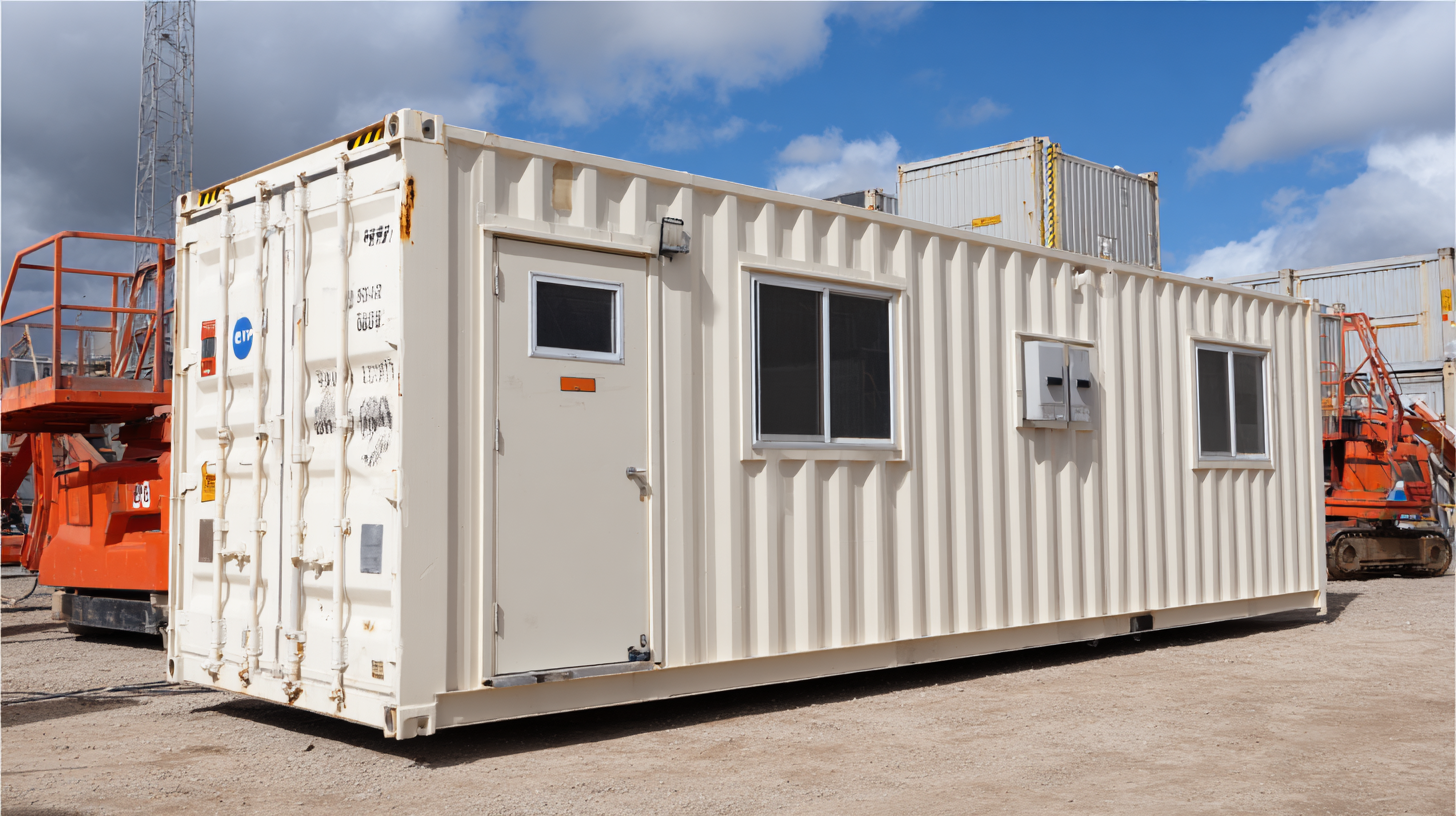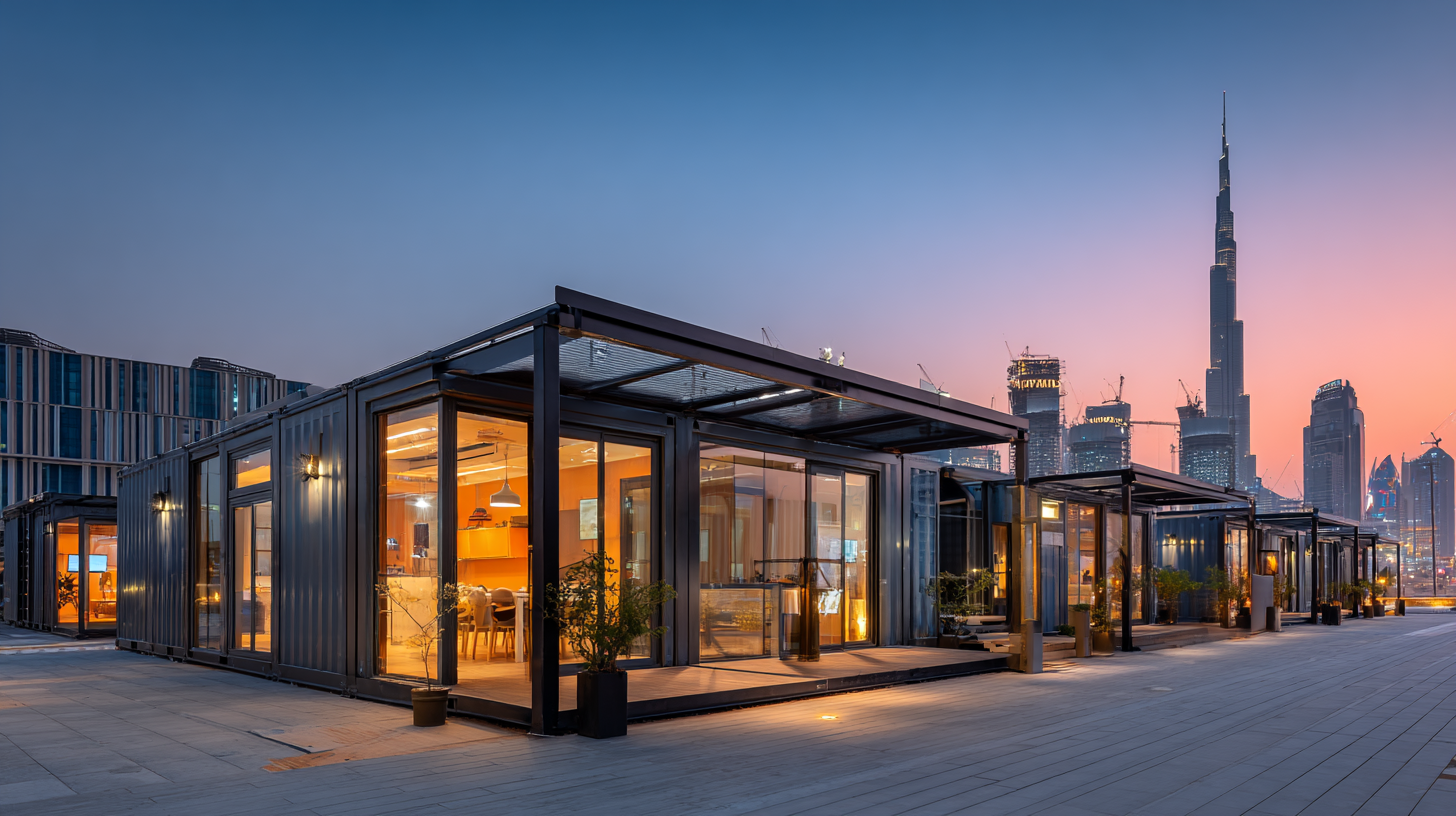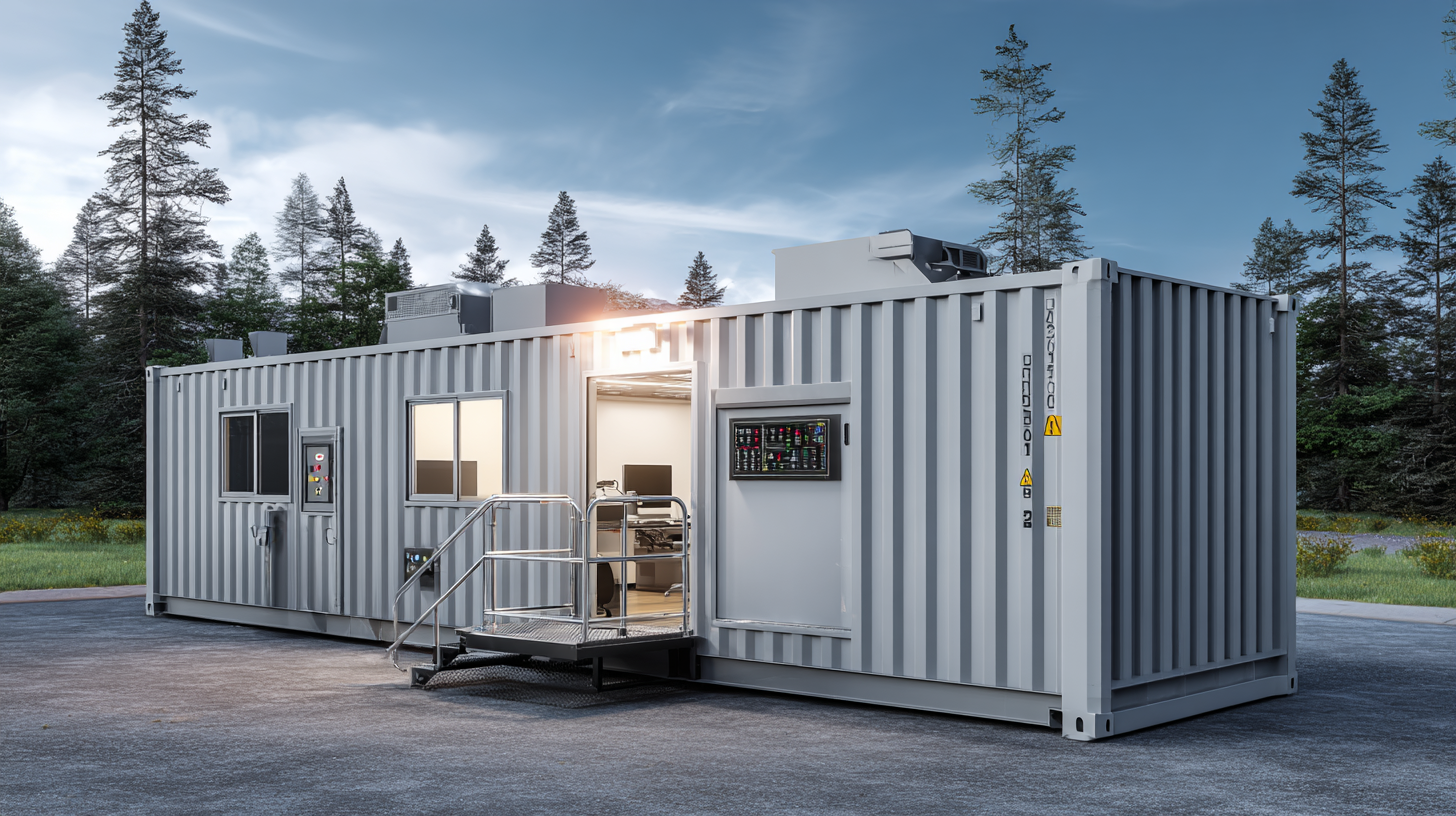In 2023, the demand for innovative workspace solutions has led to a remarkable increase in the popularity of Office Containers. According to a recent report by Mordor Intelligence, the global market for modular and portable office solutions is expected to grow at a staggering CAGR of 6.4%, reaching USD 78 billion by 2027. This surge is driven by the need for flexibility and cost-effectiveness in modern work environments, as more businesses are seeking alternatives that can adapt to their evolving spatial requirements. Office Containers not only provide immediate space solutions but also offer opportunities for customization and sustainability, aligning with contemporary trends in corporate social responsibility. In this guide, we will explore the top 5 best Office Containers from leading manufacturers, examining their features, benefits, and how they can meet diverse workplace needs in today's dynamic business landscape.

Modular office containers have become increasingly popular in today's flexible workspace environment, largely due to their adaptability and efficiency. These prefabricated structures are built off-site, allowing companies to streamline assembly and significantly reduce construction time. According to a recent industry report, the modular construction market is expected to grow at a CAGR of 6.7% between 2021 and 2028, reflecting the rising demand for adaptable workspace solutions that prioritize functionality and cost-effectiveness.
One of the key features of modular office containers is their versatility. They can be customized to meet specific business needs, from traditional office setups to collaborative spaces. Additionally, businesses are capitalizing on sustainable practices by utilizing repurposed shipping containers, which minimizes waste and reduces environmental impact. Recent studies indicate that modular offices can cut construction waste by up to 90%, making them a smart choice for eco-conscious companies interested in enhancing their operational efficiency while fostering a sustainable work culture.
As businesses continue to adapt to hybrid work models, the importance of flexible and functional workspaces cannot be overstated. Modular office containers provide a practical solution, allowing organizations to easily scale their office space as needed. With the growing trend of remote and flexible work environments, the investment in modular offices presents an opportunity for companies to innovate and thrive in a rapidly changing landscape.
The comparative analysis of shipping containers and prefabricated office units reveals significant insights about their sustainability and efficiency in modern construction. Shipping containers, initially designed for transport, have gained traction as building modules due to their structural strength and cost-effectiveness. Recent reports highlight that the global modular construction market is projected to reach $234.7 billion by 2031, indicating a growing preference for quick-to-deploy and efficient building solutions. Shipping containers can drastically shorten the construction cycle, especially in areas with harsh climates where traditional methods face challenges.

On the other hand, prefabricated office units offer efficiency in materials use and construction time. Studies indicate that while prefabrication has distinct advantages, it’s essential to consider the life-cycle impacts of these structures. The overall environmental benefits of modular solutions can hinge on the materials selected and their potential for reusability.
Tips: When weighing options between shipping containers and prefabricated units, consider the longevity, energy efficiency, and resale value of each structure. Conduct a thorough analysis of specific project requirements, including budget and timeline, to make an informed decision that aligns with sustainability goals. Remember that local regulations might affect the feasibility of using shipping containers in your area.
The office container sector in 2023 is undergoing significant transformations driven by key industry trends that shape its future. With the global reusable packaging market expected to grow at a CAGR of 5.9% from 2025 to 2030—estimated to be worth USD 135.8 billion by 2024—there’s an increasing demand for eco-friendly and versatile office solutions. These containers resonate with businesses aiming to reduce their environmental footprint while maximizing functionality.
Furthermore, the rise of Southeast Asia as a global manufacturing hub introduces diverse opportunities for the logistics sector. As trade flows shift to this region, companies are paying keen attention to transport and storage solutions that cater to the Less-than Container Load (LCL) segment, which is projected to see substantial growth. This shift not only enhances logistics efficiency but also fosters innovation in supply chain management.
**Tip:** When choosing office containers, consider sustainability features and flexibility in design to meet evolving workspace needs. Additionally, exploring container options that align with future logistics trends can significantly boost operational efficiency and reduce costs.
Sustainability in office containers is becoming increasingly vital as companies seek eco-friendly alternatives for their workspace needs. A recent survey highlights that while there is a strong commitment to sustainable packaging, only a few organizations are making significant progress toward achieving their eco-friendly goals. This commitment extends to the office container industry, where the use of sustainable materials plays a crucial role in reducing environmental impact. The valorization of mixed office waste into recycled materials, such as macro-, micro-, and nano-sized particles in containerboards, exemplifies an innovative approach to enhancing performance while improving environmental perceptions.
The demand for sustainability is also reflected in the growing interest in shipping container architecture. Architects are exploring the use of old shipping containers to create offices, homes, and restaurants that align with reduced carbon footprints. For instance, the development of sustainable bioplastics from renewable resources for packaging purposes demonstrates that alternatives exist for conventional materials that dominate the market. Furthermore, greening container terminals has emerged as an effective solution for sustainable storage practices, providing a practical alignment with broader sustainability goals. As the industry progresses, the emphasis on eco-conscious design and materials will likely shape the future of office environments.
| Container Type | Material | Dimensions (mm) | Sustainability Features | Recyclability |
|---|---|---|---|---|
| Portable Office | Recycled Steel | 6000 x 2400 x 2500 | Energy-efficient, Low-Emission | 100% recyclable |
| Modular Office | Sustainable Wood | 5000 x 2500 x 3000 | Use of renewable resources | Biodegradable components |
| Shipping Container Office | Corten Steel | 3200 x 1600 x 2400 | Repurposed materials | 100% recyclable |
| Green Office Cabin | Hemp Insulation | 4000 x 2000 x 2500 | Natural insulators, Low impact | Fully recyclable |
| Eco-Friendly Container | Recycled Plastic | 3000 x 1500 x 2000 | Reused materials, Lightweight | 100% recyclable |
As businesses increasingly face rising costs for labor, services, and materials, the cost-effectiveness of office containers has become a focal point for decision-makers. Choosing the right office container can provide significant return on investment (ROI) and long-term value, especially in a landscape where cost reduction is a top priority. The ability of office containers to offer flexible and efficient workspace solutions allows companies to adapt to changing demands while keeping operational costs manageable.

The integration of innovative technologies within office containers further enhances their appeal. Smart containers equipped with Internet of Things (IoT) sensors can provide real-time data on various conditions, boosting not only efficiency but also sustainability. Companies that leverage these technological advancements can significantly improve their overall supply chain processes, making the investment in office containers not just a strategic choice but a necessity in achieving a resilient business model. As organizations evaluate their needs in 2023, the emphasis on ROI and sustainable solutions will undoubtedly shape the future of workspace design.
Rob was always very honest and upfront about everything and took the time to explain everything I needed.
“highly recommended. They provided us with a great storage container with ontime services.”
“Bought a used container, its perfect, no leaks and in good condition.”
“Good service and prompt delivery. A great option for temporary storage at a decent price.”
Join our mailing list to get the latest storage container inventory and offers